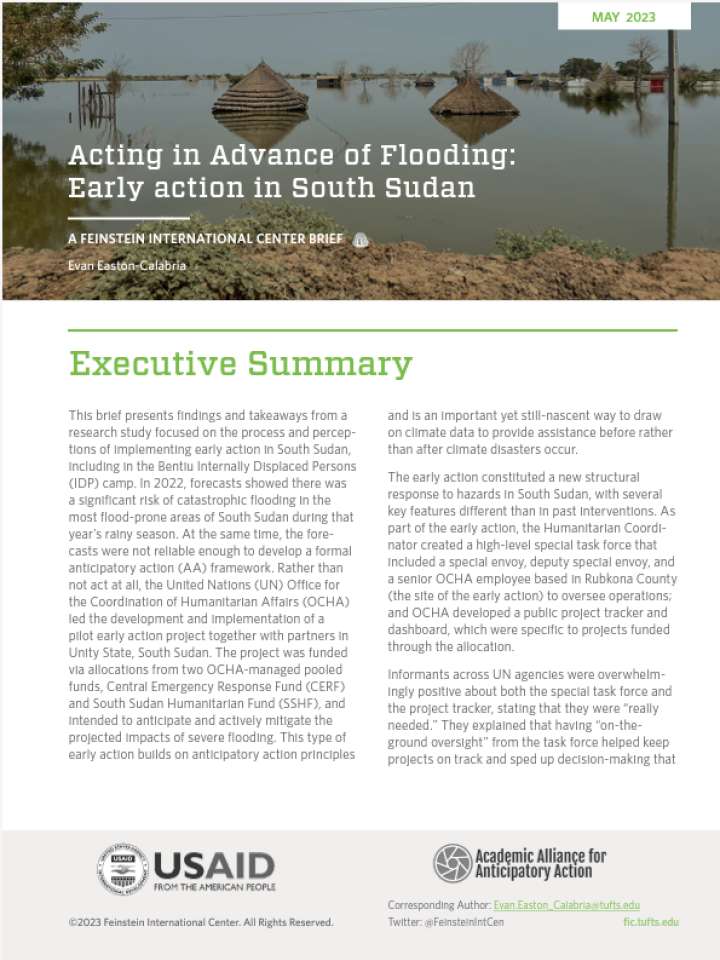Acting in advance of flooding: Early action in South Sudan
This brief provides findings from a study about involved UN actors’ perceptions of this early action intervention. It contributes evidence on implementing early action (a type of anticipatory action) in complex environments, including for displaced people, and in the face of protracted crises.
Findings from the study include:
- Informants across UN agencies were overwhelmingly positive about the novel structure of the intervention, which included a special task force and a project tracker. Informants explained that having “on-the-ground oversight” from the task force helped keep projects on track and sped up decision-making.
- At the same time, some informants perceived the regular follow-ups with project partners through the task force as an uncomfortable form of micro-managing. Others explained that limited decision-making power of agency staff working at the sub-national level led to delays in implementation. These findings relate to power dynamics and link to larger calls for humanitarian localization in the aid sector.
- The majority of informants discussed the need to increase linkages between anticipatory action and development. Suggestions for doing so included increasing adaptive actions, such as building elevated houses for households and paving roads to improve access to difficult-to-reach areas.
Explore further
